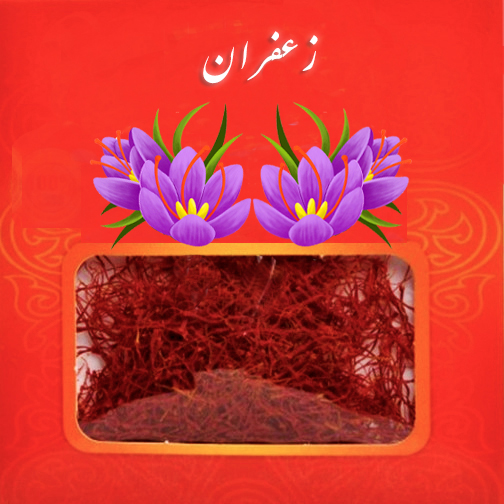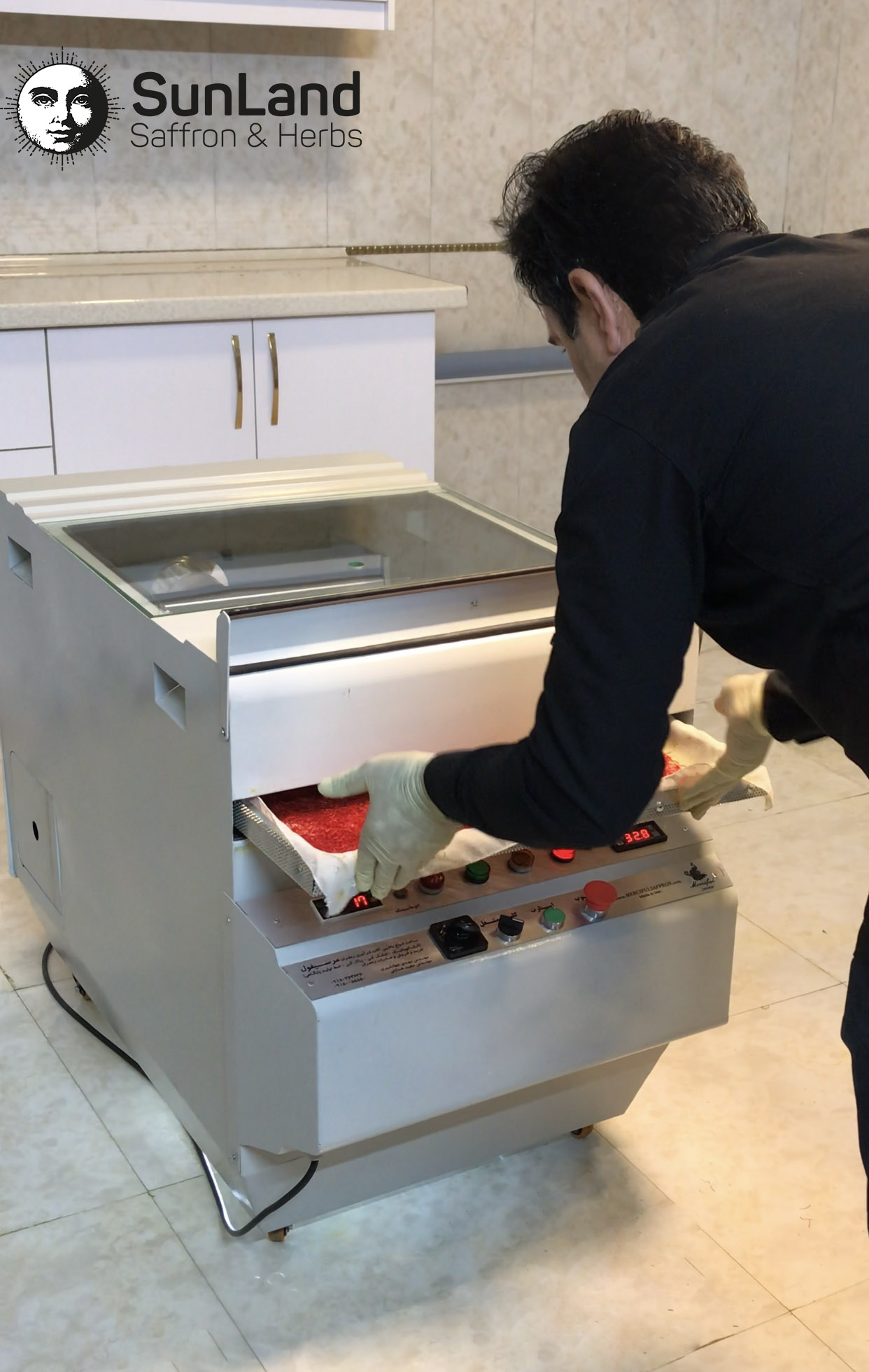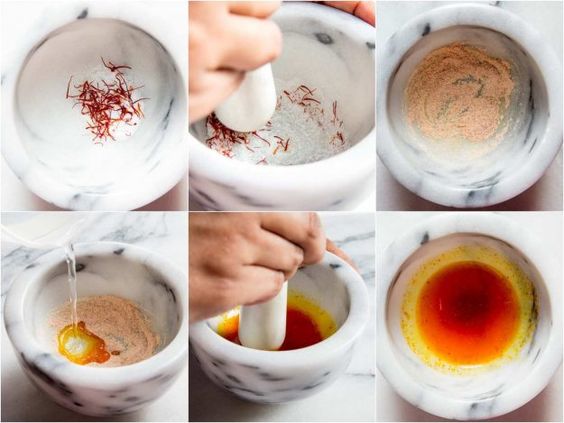14/03/2022
How to Store Saffron?
You have the right to be worried about how to store saffron since it is known as the most expensive food additive in the world. Many are worried that their saffron goes bad or does not last as long as they wish. Usually saffron does not go bad, however, it may lose flavor and aroma in long run. This usually happens if the saffron is not stored properly. In this blog, we discuss tips and points on how you can keep saffron fresh at home.
What factors affect the quality of saffron?
No matter you are storing saffron for home use or for selling purposes, there are some special considerations in preserving the saffron. Your method of storage greatly affects the quality of your saffron product in different climate conditions. If saffron is kept properly it can last for more than two years. Here you will see a list of influential factors on saffron storage:
Appropriate packaging or container
Low-quality plastic containers are the enemies of saffron properties. instead of plastic containers, it is good to store saffron in polycrystalline, wooden, metal, and glass containers. The container should not allow light in. therefore, with transparent containers, it is advised to keep the saffron within a foil wrap to block exposure to light.
Appropriate temperature
Saffron loses aroma and color in higher temperature conditions. The normal room temperature is the best to keep saffron safe. However, if the surrounding temperature is warmer than usual, you should move it to a place with normal temperature conditions. Ideally, the saffron should be stored under 68 F (equals 15- 20 C).
Appropriate moisture level
It is important to keep saffron in an environment with a low level of humidity. If not, the saffron loses its aroma and properties as it absorbs moisture and it becomes darker in color in high-humid conditions. Therefore, companies should use moisture-resistant types of packaging, in countries such as Vietnam and coastal cities. The ideal humidity level for storing saffron is around 40%. A higher level of humidity will make the saffron go bad, in a short time. Saffron should not be exposed to air or oxygen, or places where air circulates freely.
How to dry saffron at home?
You can dry your saffron at home. To do so, you should dry it in an oven or put it on indirect heat exposure. The oven solution is a better choice, as it provides heat from all sides. Using an oven, you only need to spend 5-8 minutes to dry your saffron, under 70-60 C heat levels. However; you need to be cautious about heat and timing. If you dry it too long, your saffron will burn and lose its properties. Once your saffron is dried, you can grind it using mortar and pestles.
In addition to that, it is possible to dry saffron in fruit/veggies dehydrators at home. This is easier than above options. You can dry your saffron threads just as easy as you dry your fruit.
Where to keep saffron at home?
You probably store the saffron container in a cupboard in your kitchen. It is ideal to keep the saffron in a wooden cupboard, which is far from the stove, oven, or any heating machine. The wooden cupboard does not absorb heat, which results in the loss of saffron flavors and smell.
Can I store saffron in the refrigerator?
A refrigerator is not the best option to keep saffron, however, some prefer storing in cold environments like a fridge. If you are the type of person, who likes to keep saffron in the fridge, you should consider two things:
- Your saffron loses quality within two weeks, when kept in refrigerator.
- Or, the saffron absorbs moisture once it is taken out of the fridge for use, after seconds. Therefore, it is good to put the container back in the fridge, immediately after use. Moving saffron in and out of the fridge will result in condensation, moisture absorption, and quick spoilage.
Can I store saffron in the freezer?
Saffron normally loses 35% of its properties, two years from harvest time. However, if you keep saffron in a freezer, it is the best to keep it no further than 1-2 years. Not only, its durability, but also its aroma, taste, and bioactive compounds will be lost once they are kept in the freezer.
On the other hand, it is a good idea to keep brewed saffron in the freezer for later use.
How to store brewing saffron?
You may need to brew saffron for some recipes, such as saffron rice or other foods. You need to pour the brewed saffron into a glass container and keep it in a refrigerator. The brewed saffron can preserve the saffron properties for two weeks in the refrigerator.
You can also store cool brewed saffron in a freezer, using ice cubes. This way, you only need to add a cube into your food for the next time you want to use them.
What is the best way to store saffron?
As above, we shared the tips for storing saffron in different conditions. Generally, it is advisable to store Zaferan under 68 F (equals 15- 20 C), with less than 40% level of humidity. Polycrystalline, wooden, metal, and glass are the best container materials for storing saffron. Saffron should be kept away from light exposure, as it will lose its properties gradually.
How to Keep Saffron Fresh?
Saffron users always come up with the question “How is it possible to keep saffron fresh?” It is a very important question and we require to know how to store saffron properly. Saffron needs special storage conditions to be kept as fresh as possible.
Saffron storage tips
- It is advised to not buy saffron powders; always purchase saffron stigmas.
- Keep saffron in wooden cupboards away from stove heat.
- Store saffron in airtight containers
- Grind saffron filaments right before usage: this way, it retains its maximum effect.
Features of fresh saffron vs. old saffron:
Here we address the question of “how to identify old saffron vs. fresh ones?” Below, you can try these tips to decide whether the saffron is fresh or not:
- Fresh saffron is bright and shiny red, while the old ones have a dull color.
- Old saffron has a fragile texture, while fresh ones are soft and flexible. As a result of this old saffron is easily crushed (make powder saffron), while the opposite is true for fresh saffron.
- When adding hot water to fresh saffron, you need to wait longer for it to show color. On the other hand, expired saffron shows color faster.
- Fresh and expired saffron differ in terms of smell too. The mild smell of saffron indicates that the product is fresh, while the nasty smell is an indicator of an expired product.
DON’Ts in storing saffron
- Do not open the container frequently.
- Do not keep saffron to near light and heat exposure.
- Do not keep brewed saffron in the refrigerator for more than two weeks to avoid spoilage.
- Do not keep saffron in plastic containers.
- Do not overheat saffron, once you want to dry or brew saffron.
There are many dos and don’ts when it comes to saffron storage conditions. We will be glad to hear your experiences and stories about storing saffron. Let’s discuss what is your strategy to store saffron, in the comments section.















